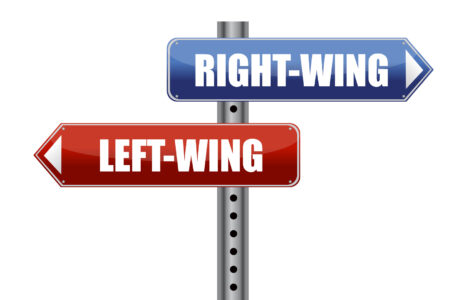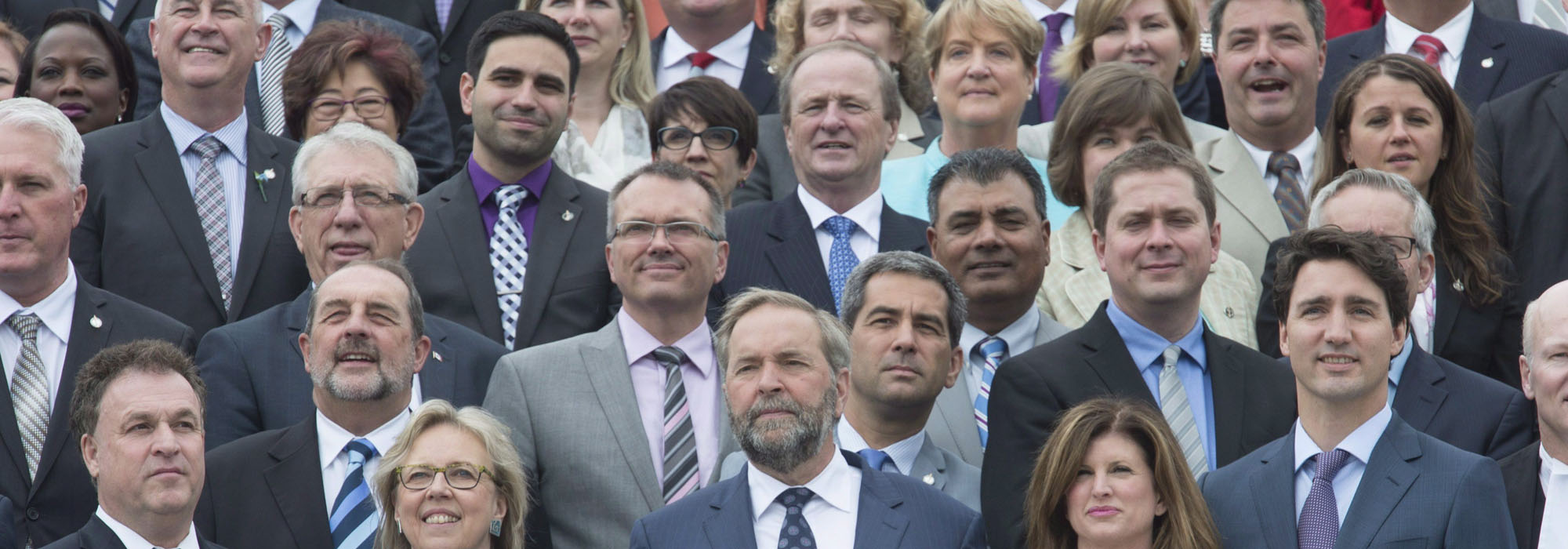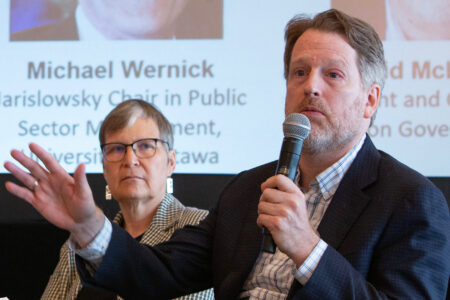
Perhaps the most remarkable feature of the debate on electoral reform is how quickly it’s made its way to the top of the national political agenda. Not so long ago, electoral reform was the preserve of activists, professional political scientists and minority parties that would benefit most obviously from some form of proportional representation.
The breakthrough came, of course, in the 2015 election campaign, when Liberal Leader Justin Trudeau declared that if his party won the election, it would be the last one fought under the “first past the post” electoral system. Apparently the implications of that promise had not been adequately thought through, and its purpose — along with that of a number of other campaign planks — had been to establish the Liberals as the party of change. It’s impossible to say what role it played in Trudeau’s subsequent victory, though it may have helped the Liberals capitalize on widespread hostility toward Stephen Harper’s Conservatives.
Now the proponents of electoral reform — and specifically of some form of proportional representation — are striving mightily to seize the moment while the Liberals flail about, looking for some way out of the mess they created for themselves. Their best alternative, in my view — unless they really want to be responsible for spurring a future of coalition governments at the national level — is to cut their losses at the earliest opportunity and retreat.
The wrong problem
Electoral reform is, in fact, a solution to the wrong problem. The critics of our current voting system, and the terms of reference of the parliamentary special committee on electoral reform, would have us believe that the problem lies with our democracy. The current single-member-plurality system — a more neutral designation than “first past the post,” which sounds like some kind of horse race — is undemocratic, or at least seriously lacking in democratic qualities. I would argue that our problem in Canada is not with our democracy but with our politics.
What’s the difference, some might ask. Aren’t they related? Indeed they are, and the origins of both can be traced to ancient Greece, but they’re not the same thing. Democracy is a condition, a system, a state of things, whereas politics is an art — the art of the possible, to quote the title of a 1961 book by the Canadian political scientist James Eayr (who was quoting Bismark). It is a thing in itself, not a subsidiary aspect of something else, such as democracy. This is also true of liberty and representative government; they too are things in themselves, and are not necessarily aspects of democracy.
Politics is not practised in all systems. It is not practised in dictatorships, for example, or tyrannies or absolute monarchies or oligarchies, because the essence of politics, as the eminent British political theorist Bernard Crick wrote long ago, is that it accepts the existence of different truths and therefore the need for conciliation. It is not the best means of achieving a pure ideal, untouched by compromise, if that’s the goal, nor is it the best means of pursuing self-interests regardless of the interests of others. It’s messy. Politics, in this sense, is at the foundation of our public life.
Somehow we’ve managed to lose sight of this in recent years. Instead of seeing politics as among the most honourable of human activities, many people regard it as a necessary evil, or even an unnecessary evil. On the one hand, many seem to think of politics purely in terms of partisanship; on the other, many regard politics, politicians and government as problems in themselves, and they turn to various forms of anti-politics. People speak of “mere politics,” implying that other activities — business being a prime example — are far more important. We just saw an extreme form of this phenomenon in the recent presidential election in the United States, where the rejection of politics and of the civility it generally entails was made explicit in ways I’ve not seen on this continent in my lifetime.
Politics and civility
Happily, civility has not yet disappeared from Canadian public life. I’m not sure why this is so. It may have something to do with culture. Canadians have a reputation for being “nice” — when we’re not apologizing to people, we’re thanking them. It also has to do with our history. We never broke sharply with the “mother country,” as did the American colonists, who then created something entirely new that could subsequently be used to justify various positions claiming to represent the will of “the people.” Instead, Canada evolved peacefully from colony to independent nationhood. Even this we did in so muddled a manner that we continue to have ties in the form of a common monarch who is largely beloved. The continued existence of a monarch also means that in our democracy, it’s difficult to speak unreservedly of popular sovereignty. The Crown is part of our constitution. Arguably, it would be more accurate to speak in Canada of parliamentary sovereignty, rather than popular sovereignty, but this too has been limited since 1982 by the Charter of Rights and Freedoms. As the Canadian historian William Kilbourn once wrote, Canadians are “a people of the law rather than the prophets.”
Whatever the explanation, civility continues to be highly regarded in our public life, but we should guard against thinking that what just happened in the United States could not happen here. Occasional popular eruptions attest to this — the Rob Ford mayoralty in Toronto, for example, or the recent outburst of the “Lock her up” chant at a protest rally sponsored by Rebel Media in front of the Alberta legislature. Overheated expressions of partisanship also often cross the line — daily, it sometimes seems, if we pay too much attention to Question Period. Cynicism about politics is a greater threat than cynicism about democracy.
Possible remedies
There are avenues other than the electoral system to pursue in search of remedies for the political malaise. One is the approach to Senate reform recently put forward by former senators Michael Kirby and Hugh Segal in a report for the Public Policy Forum. Kirby and Segal seek to give new life to the original conception of the Senate as an institution of sober second thought that constrains the actions of a majority government. At the same time, they would place limits on those constraints, since the Senate is an unelected body.
Similar approaches could be taken to Parliament as a whole, such as the strengthening of the committee system recommended by Thomas Axworthy in the report he wrote in 2008 for the Queen’s University Centre for the Study of Democracy (Everything Old Is New Again: Observations on Parliamentary Reform) or the recommendations put forward in the earlier report prepared by the Library of Parliament, The Parliament We Want: Parliamentarians’ Views on Parliamentary Reform (2003). The commentary in both documents extends far beyond Parliament itself.
The old question of citizenship education could be revisited, at the risk of loading yet another responsibility onto our public school system. A book published a half-century ago — What Culture? What Heritage? — is in some ways outdated in its focus on the “national question,” but its discussion of civics education is still worth reading. So too are modern descendants, such as the work of the History Education Network.
One way or another, we need to find ways of reviving genuine politics, politics in which the struggle for advantage is leavened by a concern for negotiation, persuasion and accommodation, and by a suspicion of naked partisanship. Political parties at their best serve as intermediaries between the public and government, a form of civil society, educating and leading their members and, in turn, communicating the preferences and concerns of their members to the legislatures and the wider public. Far from being mere weapons of partisanship, they are critical instruments for bringing together men and women of varying views, with the end of arriving at policies and decisions that benefit society as a whole.
The Liberal government, in other words, needs to find some means of backing away from an idea that wasn’t all that good to begin with. Electoral reform carries many unnecessary risks that its proponents downplay. The risks range from party fragmentation to creating a class of parliamentarians more accountable to their parties than to their constituents and the detachment of voters from their local neighbourhoods in favour of regional and national party identities. It’s not at all clear, either, that transition from the current system to a new one would be smooth, or that the best of the old would conveniently meld with the best of the new. Sanguine comparisons with countries that use some form of proportional representation, such as Germany — whose history, geography, ethnic makeup and political culture are very different from Canada’s — are not persuasive.
The Liberals need to combine their retreat from an ill-chosen path with a pivot toward constructive reform of our politics. In this way, they might find both a way out of the current impasse and a potentially more profitable direction for reform.
This essay is adapted from Kenneth Dewar’s presentation to the Special Committee on Electoral Reform.
Photo: Adrian Wyld/The Canadian Press
Do you have something to say about the article you just read? Be part of the Policy Options discussion, and send in your own submission. Here is a link on how to do it. | Souhaitez-vous réagir à cet article ? Joignez-vous aux débats d’Options politiques et soumettez-nous votre texte en suivant ces directives.







